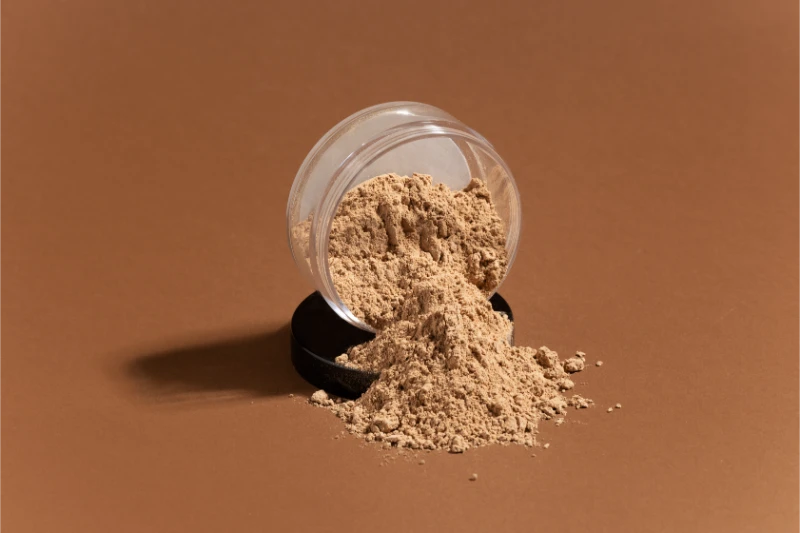


When it comes to choosing the right protein for your diet, it can be difficult to decide between whey protein and plant protein. Both have their own unique benefits and drawbacks, and it’s important to understand the differences between them in order to make an informed decision. Whey protein is a complete protein derived from dairy, while plant protein is derived from a variety of sources such as legumes, nuts, and grains. Both types of protein can provide essential nutrients and help you reach your fitness goals, but which one is better for you? In this article, we’ll explore the differences between whey protein and plant protein, and discuss the different types of whey and vegan proteins available. We’ll also look at the latest scientific and case study references to help you decide which protein is best for you.

Whey protein is a type of protein derived from milk. It is a complete protein, meaning it contains all nine essential amino acids. It is also a fast-digesting protein, making it ideal for post-workout recovery. Whey protein is a popular choice among athletes and bodybuilders for decades, as it helps to build and maintain muscle mass.
When it comes to whey protein vs plant protein, it is important to consider the different types of whey protein available. Whey protein isolate is the purest form of whey protein, containing 90% or more protein by weight. Whey protein concentrate is slightly less pure, containing anywhere from 29-89% protein by weight. Both types of whey protein are beneficial for muscle growth and recovery, but whey protein isolate is the best choice for those looking to maximize their protein intake.
In addition to its muscle-building benefits, whey protein also has a number of other health benefits. It is a rich source of branched-chain amino acids (BCAAs), which are essential for muscle growth and repair. It is also a good source of calcium, which is important for bone health. Finally, whey protein is low in fat and carbohydrates, making it a great choice for those looking to lose weight.
Overall, whey protein is a great choice for those looking to build muscle and improve their overall health. It is a complete protein, containing all nine essential amino acids, and it is a rich source of BCAAs and calcium. When it comes to whey protein vs plant protein, whey protein is the clear winner (for me).

When it comes to whey protein vs plant protein, it can be difficult to decide which is better for you. Whey protein is a complete protein, meaning it contains all nine essential amino acids, and is derived from dairy. Plant protein, on the other hand, is derived from plant sources such as legumes, nuts, and seeds. While plant protein is not a complete protein, it can be combined with other plant sources to create a complete protein.
When it comes to the benefits of plant protein, it is important to consider the different types of plant proteins available. Legumes, nuts, and seeds are all excellent sources of plant protein, and they provide a variety of essential vitamins and minerals. Additionally, plant proteins are typically lower in calories and fat than whey protein, making them a great choice for those looking to lose weight or maintain a healthy weight. Plant proteins are also typically easier to digest than whey protein, making them a great choice for those with digestive issues. Finally, plant proteins are often more affordable than whey protein, making them a great choice for those on a budget.
When it comes to choosing the right protein for your diet, it can be difficult to decide between whey protein and plant protein. Both have their own unique benefits and drawbacks, so it’s important to understand the differences between them. Whey protein is derived from dairy, and is a complete protein, meaning it contains all nine essential amino acids. It is also a fast-digesting protein, making it ideal for post-workout recovery.
Plant protein, on the other hand, is derived from sources such as soy, hemp, and peas, and is a great source of fiber and other essential vitamins and minerals. While it is not a complete protein, it can be combined with other plant-based proteins to create a complete protein. When it comes to deciding which protein is better for you, it really depends on your individual needs and goals. If you’re looking for a fast-digesting protein to help with post-workout recovery, then whey protein may be the best option. However, if you’re looking for a more sustainable, plant-based option, then plant protein may be the better choice. There are also different types of whey and vegan proteins available, so it’s important to do your research and find the one that best suits your daily and overall needs.
Recent scientific and case study references have shown that both whey protein and plant protein can be beneficial for health and fitness goals. As mentioned above, whey protein is a complete protein, meaning it contains all nine essential amino acids, and is a great source of branched-chain amino acids (BCAAs). Plant proteins, on the other hand, are typically incomplete proteins, meaning they lack one or more of the essential amino acids. However, plant proteins can be combined to create a complete protein.
Remember, When it comes to different types of whey and vegan proteins, whey protein is typically derived from cow’s milk and is available in three forms: concentrate, isolate, and hydrolysate. Vegan proteins, on the other hand, are derived from plant sources such as peas, brown rice, and hemp. Studies have shown that both whey and vegan proteins can be beneficial for muscle growth and recovery, but the type of protein that is best for you, once again, depends on your individual needs and goals.
When it comes to choosing the best protein for your diet, it’s important to consider both whey protein and plant protein. Both have their own unique benefits and drawbacks, and it’s important to understand the differences between them in order to make an informed decision.
Whey protein is a complete protein, containing all nine essential amino acids. It is also a fast-digesting protein, making it ideal for post-workout recovery. However, it is not suitable for those with dairy allergies or sensitivities. On the other hand, plant protein is a great option for those with dietary restrictions, as it is dairy-free and vegan-friendly. Plant protein is also a great source of fiber, vitamins, and minerals, making it a more nutrient-dense option than whey protein.
When it comes to choosing between whey protein and plant protein, it really depends on your individual needs and dietary preferences. If you are looking for a fast-digesting protein to help with post-workout recovery, whey protein is a great option. However, if you are looking for a more nutrient-dense option that is dairy-free and vegan-friendly, plant protein is the way to go. Ultimately, the choice is yours!
Our Conclusion:
Whey protein and plant protein are both excellent sources of nutrition, and the choice of which one is better for you depends on your individual needs and preferences. Whey protein is a complete protein, containing all nine essential amino acids, and is a great source of branched-chain amino acids, which are important for muscle growth and repair. Plant protein is a great source of fiber, vitamins, minerals, and antioxidants, and is suitable for those who are vegan or lactose intolerant. Recent scientific and case study references have shown that both whey protein and plant protein can be beneficial for muscle growth and repair, depending on the individual’s needs and goals. Ultimately, the choice of which protein is better for you comes down to your individual needs and preferences.
Below are case studies for your reference, based on these two great protein powders.
I hope this article was educational, thank you for your time! Please subscribe to our newsletter for more empowering blog articles, events, giveaway prizes, specials and more!
eCommerce Development By Melbourne Web Studio